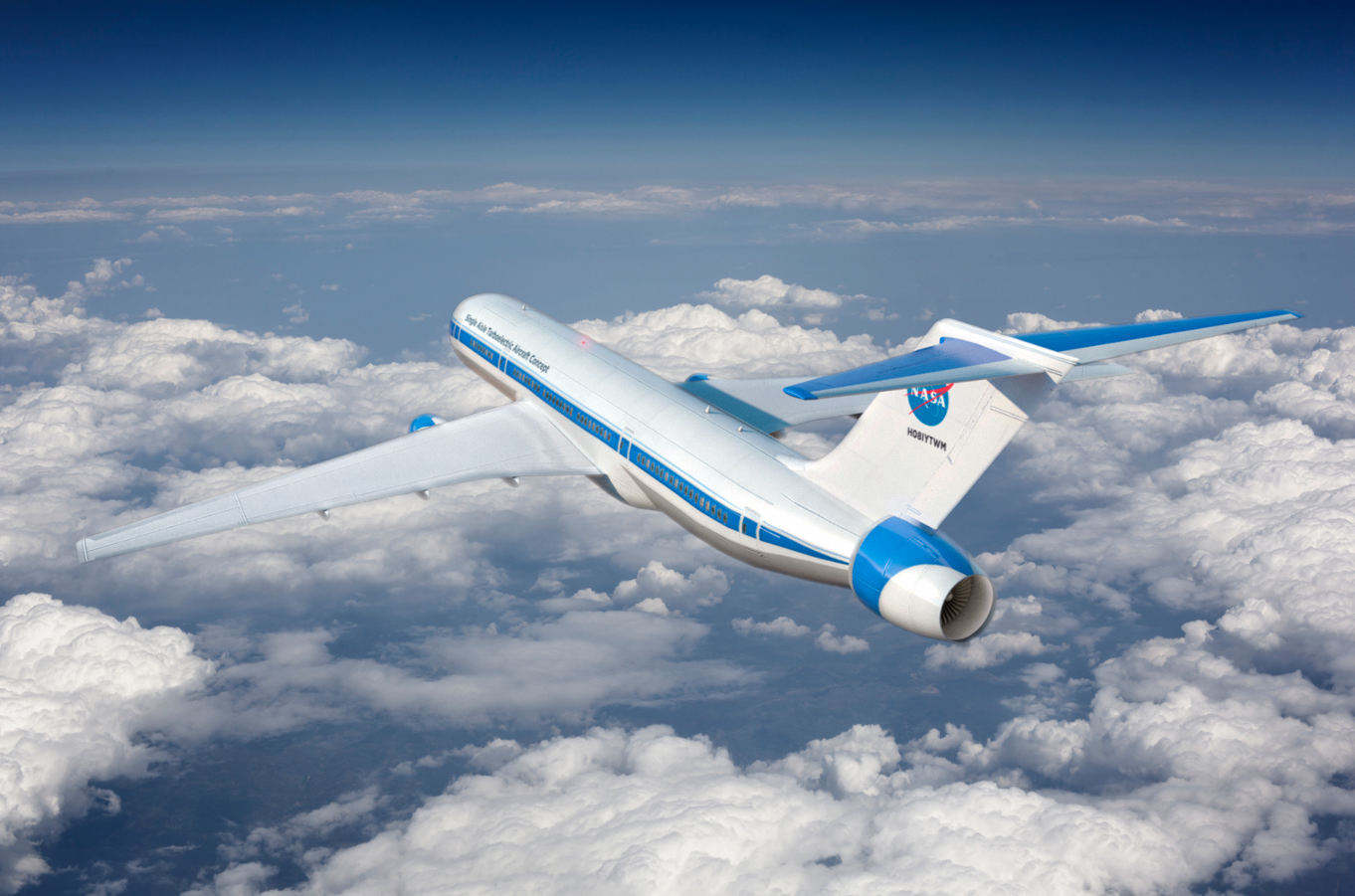The autonomous systems specialist, now a Boeing subsidiary, is working to develop hybrid propulsion concepts for future commercial transport aircraft.
Aurora Flight Sciences has been awarded a NASA contract to perform a comprehensive evaluation of a hybrid propulsion concept for a future single-aisle commercial transport aircraft that promises to yield substantial fuel efficiency benefits.
The concept includes a tailcone-mounted Boundary Layer Ingesting (BLI) propulsor driven by a turboelectric propulsion system. The so-called Single-aisle Turboelectric Aircraft with Aft Boundary Layer propulsion (STARC-ABL) concept also features conventional underwing gas-turbine engines.
Aurora is in the process of being acquired by Boeing, which clearly sees potential in the company's autonomous and hybrid-electric concepts, ranging from urban taxis to Boeing 737-size aircraft.
Aurora is currently leading the development of the Defense Advanced Research Projects Agency (DARPA) XV-24A LightningStrike, a 12,000-pound hybrid-electric aircraft with 3 MW of electric power driving 24 electric fans.
Aurora recently flew a fully autonomous, battery-powered subscale version of the XV-24A, which also serves as the basis for Aurora’s work on urban mobility platforms. In April 2017 Aurora was selected as one of Uber’s industrial partners for the UBER ELEVATE programme.
Aurora is also developing the D8, a commercial airliner design for the 150-180 seat market. Using composite structures, boundary layer ingestion, and high levels of autonomy, the D8 promises up to 50 percent reductions in fleet-wide fuel burn over designs currently in use.
The D8 is being developed through the FAA CLEEN II programme, the NASA New Aviation Horizons programme, and Aurora internal funding.

